Calling all Australian Reiki practitioners!
An invitation from John Coleman, president of the Australian Reiki Connection:
ARC 2010 National Reiki Conference
Theme: Integration of Reiki as a Complementary Therapy into Mainstream Health Care and Community Settings
Saturday 9th –Sunday 10th October 2010
Pre-registration and welcome reception Friday 8th October 6.30pm
Rydges on Swanston 701 Swanston Street Melbourne Australia VIC 3053
for everyone who has an interest in an integrative and holistic approach to health care and who believes in putting the patient first
Whereas Reiki is a complementary therapy that works alongside all other modalities, there is widespread misunderstanding that Reiki is an alternative therapy and as such is competing with conventional medicine.
Conference Objectives:
· To further the process of having Reiki as a complementary therapy integrated into mainstream health care and community settings.
· Raising the awareness and benefits of Reiki as a complementary therapy, in these facilities and with relevant government departments.
· Update professional Reiki Practitioners on some of facilities in Australia where Reiki is being used.
· Demonstrate that by working together, we can create better health for all.
· Demonstrate how professional Reiki treatment practitioners can play a key role in the process.
· Raise awareness that this integration of Reiki is already happening, with beneficial outcomes for patients, which in turn has positive beneficial outcomes for the healthcare system and Professional Reiki Practitioners.
· How you can play a key role in the ongoing process of promulgating Reiki in the community.
· Network with other Reiki Practitioners, allied health care workers and share our knowledge and experience
· Demonstrate the importance of caring for the carer
· Demonstrate how recent trends that are supporting the move to a wellness paradigm and its implications for healthcare of the future.
· Show eight years of evidence in providing Reiki for cancer patients in a major teaching hospital
· How animals also benefit from Reiki
· How hospital rooms can be transformed into spaces where people can engage in an experience that helps alleviates their anxiety, stress and pain
Who will benefit from attending this event?
· Practitioners of complementary medicine and therapies.
· GPs, Clinical specialist, Nurses, Oncologists and other allied health professionals.
· Academics in health care disciplines and researchers
· Medical administrators and Policy makers.
· Students of medicine, nursing, allied health professions and complementary therapies.
There are many changes taking place in Australia for complementary therapies including Reiki, new regulations and requirements are being introduced that affect Practitioners and how they deal with the public. We all need to be aware of these and how we can continue the ongoing process of maintaining self regulation rather than Government imposed regulation.
This conference is of immense importance, as it will provide an opportunity to help shift the emphasis from one of defense, justification and attempting to find scientific proof for Reiki(although we should continue with research) to one of offense, validation and patient/client proof.
Conference organizers are proud and honored to have a range of eminent speakers (click here) who will bring a powerful message to attendees, among them the internationally renowned Professor Marc Cohen.
Here is what Professor Cohen says about his presentation:
"The world is currently facing a series of crises that suggest a new paradigm for operating in the world is needed. In healthcare this will mean moving from an illness model that focuses on a medical industry that deals with pain and established diseases to a wellness model that embraces joy and fulfillment from life and deals with lifestyle and preventive measures. It has been said that "the currency of wellness is connection' and this can be applied to our connection between ourselves and our community and environment as well as connection between practitioners and patients and between practitioners from different disciplines".
Professor Cohen’s presentation will discuss recent trends that are supporting the move to a wellness paradigm and its implications for health care of the future.
Here is an abstract of what another of our eminent speakers, Molly Carlile, has to say about her presentation:
"As contemporary, mainstream healthcare now speaks the language of holism (theoretically at least) it is timely for complementary therapies along with the expressive arts to 'come out of the closet' and stand proud alongside the traditional medical disciplines as valid contributors to holistic health and wellness…The time has come for us to stand in the light, to name what we do and to be prepared to put our modalities to the same rigorous scrutiny applied to all other therapeutic interventions".
Molly’s presentation will explore the essential components required for complementary therapies including Reiki, becoming accepted as part of the mainstream health model.
The rising tide of chronic disease and conditions, a growing elderly population, combined with massive hospital budget blowouts are a fact of life for all Australians and indeed for all nationalities. These and other forces will continue to affect the healthcare system for the foreseeable future.
What can we do to help ease this? No one solution can work in isolation.
The only sustainable answer is for ALL of us to work together, put aside our differences and open our minds to what is known to work “for the patient” which in turn works for the system.
We need to put together an Integrated Health Care system where patients are treated as individuals not a mere collection of symptoms, where we acknowledge that body, mind and spirit interact and that what effects one affects all three.
Integrated Health Care promotes health and wellbeing by bringing together the best in conventional and complementary medicine to achieve balance in all the factors that contribute to maintaining or improving optimal health.
Reiki has an important and vital role in this.
More importantly we need to give more respect to and empower patients, so that they can play a central role in their own health care.
What is Integrated Health?
Here is what the Prince’s Foundation for Integrated Health in the UK had to say on the subject:
Responsibility for our health isn't something we can continue to simply delegate to doctors and medicine. Most aspects of health are a reflection of the way we live our whole lives - aside of course from the genetic lottery or the misfortune of succumbing to infection (and even then, our lifestyles affect the robustness of our immune system).
Factors like fulfilling work, strong communities, the buildings we live in, our relationship with the natural world and the food we eat directly affect our wellbeing. So the first step in integrated health is helping people to make choices that keep them well and out of the healthcare system.
But once somebody is ill, treating their problem with an integrated approach means bringing together mainstream medical science with the best of other traditions. Complementary interventions may range from stress reduction techniques to therapies like acupuncture or nutritional therapy and Reiki.
Integrated health is a response to the changing patterns of disease in the early 21st century. It recognizes that sudden illnesses – a broken leg, an acute infection – can now be dealt with fairly swiftly by the health service, and cure is often possible. The patients now taking up around 80% of the time and resources of the health service are those experiencing a slow slide into chronic conditions such as allergies, back pain, stress or heart disease. Unaddressed, these illnesses can accumulate into crippling conditions.
The answer to this kind of illness rarely lies in taking tablets alone, but rather in addressing lives in the round. This can often call for lateral thinking on the part of practitioners, finding innovative ways to bring people back to health.
We know too that empowerment is good for patients. Research is starting to reveal that when patients are equal partners (with the health professionals they see) in the management of their own health, it can actually have an effect on their 'clinical outcomes' - helping them to get better and stay as well as they can.
Of course, even the most fortunate person will in the end experience the effects of degeneration, old age and approaching death. So finally, integrated health looks beyond physical health to the factors that can give us solace, courage and dignity in difficult times.
This approach presents challenges for the general public and healthcare practitioners. Patients cannot just wait passively for others to find solutions. Doctors have to listen to their patients and seek more creative solutions – often working in a very constrained timeframe. And a host of other people – from town planners, food manufacturers to complementary health care therapists– has to acknowledge the important role they play in the health of others.
It’s a big idea. It’s complex. It often calls for unlikely alliances. However, there is a growing group of people who are putting integrated health into practice.
In Australia the Australian Reiki Connection Inc. (ARC) a nationally incorporated not for profit Reiki association, run by members for members, since 1997 is one such group.
For further details on this exciting event:
Phone: 1300 130 975
E-mail: information@australianreikiconnection.com.au
Website : www.australianreikiconnection.com.au












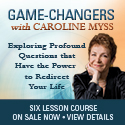
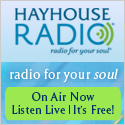





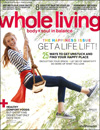


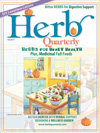
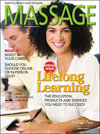

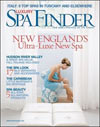
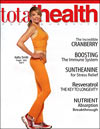






1 Comments:
I am pleased to confirm that internationally renowned Reiki Master/Teacher Pamela Miles will be presenting via live video link up to the ARC National Reiki Conference.
Here is what Pamela has to say:
Health Care Collaboration: What Reiki Practitioners Need to Know
This is an exciting time to be a Reiki practitioner. The health care climate is shifting and conventional medicine has increasing interest in complementary therapies.Reiki practitioners who understand conventional health care culture and can speak about Reiki in neutral language are poised to carry Reiki into mainstream medicine and the public. We will discuss skills and strategies that will increase your effectiveness and strengthen your professionalism.
ARC is delighted to have Pamela as one of our keynote speakers
Post a Comment
<< Home